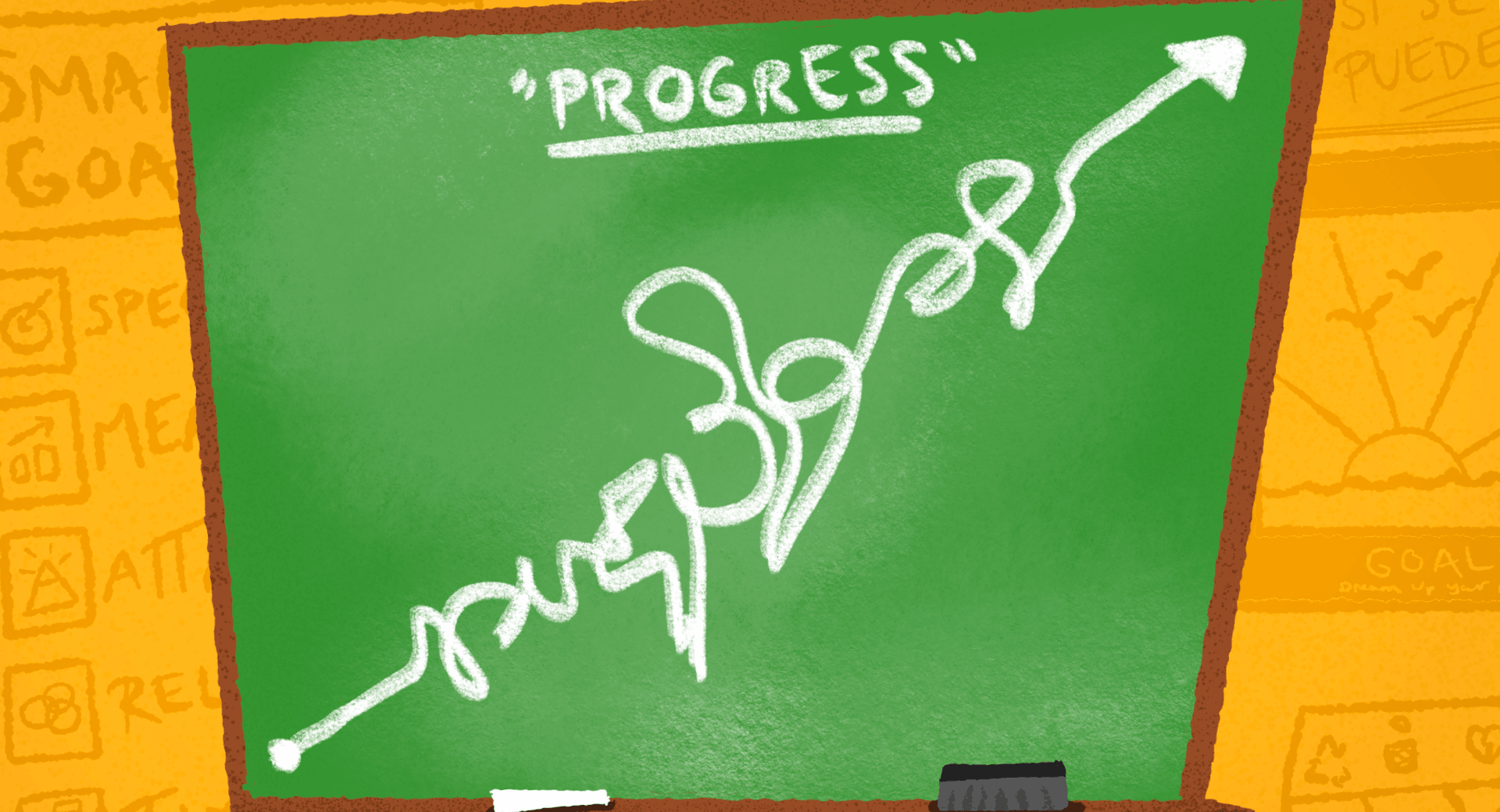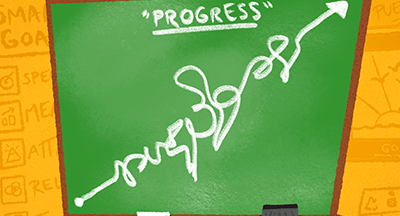
Motivating kids to grow and learn is no easy task. Meeting achievement standards is no easy task. Keeping hundreds of teachers and thousands of learners on the path to success is no easy task. Once you add up all the ongoing goals within a school district, it’s easy to slip into feeling the crushing pressure instead of the limitless potential.
But right now, between school years, let’s just take a breath and ponder the concept of progress. Depending on your role, that definition is going to fluctuate, but at its core it remains the same. It’s the growth that moves us forward closer to a goal. And it’s never a nice straight shot from beginning to end.
That might seem like an obvious statement, but rewind to the days of report cards, pop quizzes, and red-penned grades. Slide down that mountain of district goals to the very end of the line: individual students facing the first challenges of their lifetimes.
What if someone had told you at that moment in your own development that progress is never linear? That downs can sometimes outnumber the ups on the way to success, and more importantly—it’s normal if they do?
It’s a very, very tiny piece of the puzzle of what may contribute to childhood anxiety and depression (which according to the CDC affect a little over 9% and 4%, respectively, of children ages 3-17) but what if a shift in perspective early on could affect how kids view and set their own goals and growth for a lifetime?
Lots of adults have learned the concept of SMART goals over time and growth in their careers and personal lives. Specific, measurable, attainable, relevant, and time-based are all great and important ways to measure a goal and see if it’s appropriate. But even in the icons accompanying the image about measuring progress, that trend line only climbs. And even that tiny image can whisper thousands of words of self-doubt into an already anxious kid’s head.
We can’t and shouldn’t abandon the process of setting (and annihilating 💪😤) goals because 10-ish percent of the population finds the concept intimidating at times. What we can do is be cognizant of that reaction and keep the intimidation factor lower with thoughtful accommodation.
Some ways adults who raise and teach children are trying to promote progress over perfection is to praise the effort behind the grade or achievement. Leaders can share their challenges to help students picture the struggle that comes along with great success. Have students track their mistakes along with other benchmarks and milestones.
Above all, if the idea of progress shifts to just as many downs as ups, plenty of trials along with triumphs, and the overall school culture paradigm shift will take care of itself. In a society so focused on success as part of wellbeing, it’s high time we show an accurate picture of what it really looks like: a ton of hard work, a bit of luck, and lots of learning through failure.
Your pint-sized perfectionists will benefit and go on to achieve even more greatness with this tweak in perspective.
Follow-up resource: Educating the Whole Child
What happens when we shift from learning concepts to teaching the whole child how to grow?WHAT'S NEXT FOR YOUR EDTECH? The right combo of tools & support retains staff and serves students better. We'd love to help. Visit skyward.com/get-started to learn more.

|
Erin Werra Blogger, Researcher, and Edvocate |
Erin Werra is a content writer and strategist at Skyward’s Advancing K12 blog. Her writing about K12 edtech, data, security, social-emotional learning, and leadership has appeared in THE Journal, District Administration, eSchool News, and more. She enjoys puzzling over details to make K12 edtech info accessible for all. Outside of edtech, she’s waxing poetic about motherhood, personality traits, and self-growth.





